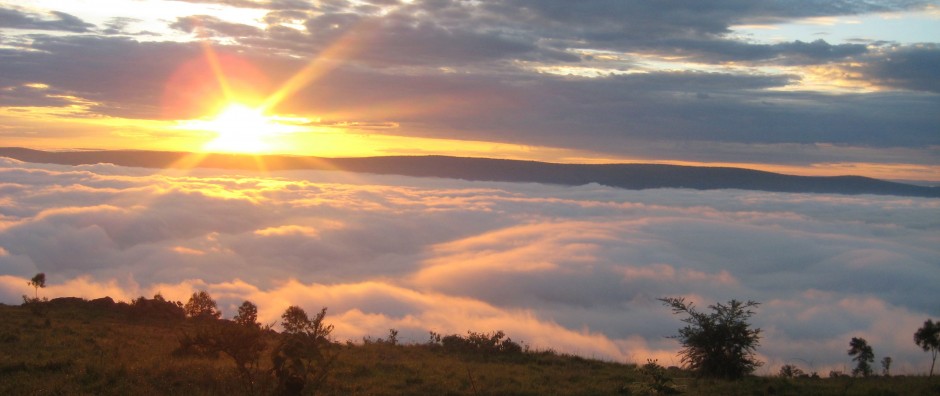As a student of colonialism coming to Tanzania I expected more negativity from Tanzanians, especially educated Tanzanians, about the impact of colonialism on Tanzanian society, and possibly some analysis of how current international power structures have failed to help create conditions favorable to Tanzanian development. As you might suspect, if you read my post about colonialism in Tanzanian education, these expectations were false. In all my time here only one person has voiced opinions that seemed in any way to reflect a post-colonial analysis of Tanzanian society and politics.
The vast majority of Tanzanians – especially the poor, uneducated, rural people that I have met in Ngara – find no problem at all with the impact of the structure of international power on Tanzania. When they find out that I am from the United States (America, to Tanzanians, except the ones who sometimes ask, “North? Or South?”) people almost universally respond with excitement, saying something about how America does so many good things for Tanzania, and that I am proof of that. You might think this is an impact of Barack Obama fever, but actually Tanzanians don’t seem entirely excited about Obama, as some of them have learned about his position on gay people in the military,
In fact, many of the Tanzanians I have talked to love George W. Bush. Apparently he visited here at one point, and to Tanzanians that was a great sign of his deep respect for the Tanzanian people, and this visit, to them, represented how America was doing its best to help the Tanzanian people. During this trip, apparently, he did the American standard of kissing some babies and shaking some hands, and as a result of the entirely favorable response he received, Tanzanian President Kikwete has adopted some of the same public relations strategies.
So, if America is doing good in Tanzania, and European countries (sometimes America is included in this group) are not at fault for Tanzanian problems, who is? Well, as my post on colonialism in Tanzanian education suggests, some Tanzanians believe they are lazy, and must be pushed to work harder with “the stick.” This is some heavy post-colonial Stockholm Syndrome shit if I have ever heard it. Sure, some Tanzanians don’t work hard (teachers, especially), but a lot of Tanzanians work extremely hard just to subsist.
Another group almost universally blamed for Tanzanian problems is the corrupt, inadequate, Tanzanian political elite. This is probably very true, and for a second I even thought “wow, what if Tanzanians are really at fault for their own development failures?” But, like I said, it was just for a second. Obviously Tanzanians, as the primary stakeholders in their development, do play a large role in determining whether Tanzanian development proceeds or stagnates, but a lot of blame can be accessed to external groups and pressures.
Indeed, many of the problems Tanzanian faces are the result of negative external influence. Tanzania is a rich country in minerals, land, and now oil, but in many respects it has utterly failed to utilize these resources effectively. This may primarily be a problem with Tanzanian government failing to write good contracts with international resource extraction groups, but the groups themselves are also to blame, as presumably many of these contracts have “sweeteners” for the Tanzanian officials involved.
Additionally, much of the “aid” that Tanzania receives from the West does little more than allow the West to control how the Tanzanian government operates. For example, a World Bank report on Tanzanian roads in 1998 suggested that while Western donors spent over 2 billion dollars on the construction of roads in Tanzania over a 20 year period, the actual quality of roads did not increase, because there was no maintenance of preexisting roads during this period. As William Easterly suggests, the growth industry in Tanzania is actually just a big bureaucracy that functionally does little more than provide jobs to the people who work in it.
Striving for specific development markers set by international organizations like the UN can also prove problematic for achieving actual development. Over the last 15 years, under international political pressure to provide universal secondary school education, Tanzania began a massive expansion of the secondary school system, when realistically Tanzania was not ready for an expansion of this magnitude. So, secondary schools were built (and funded by international groups) everywhere, even in the most remote wards. Now, these schools don’t have teachers, resources, or students capable of handling the rigorous, university prep government curriculum. I will say more about this in another post, but it should be clear that even a well intentioned goal like providing universal secondary education has a lot of potential to negatively affect development.
Where does this leave Tanzanians? Languishing, to an extent, but also in this odd position of not understanding why development is failing to reach them. While there are signs of development everywhere, in Ngara for example, it’s very hard to say whether most people are actually any better off. Yes, many Tanzanians in Ngara District have better roads, improved access to electricity, and more schools to send their children to, but do any of these amenities actually help the poor farmer who still lives off the grid? Not really, and these poor farmers are the vast majority of people in Ngara District.
